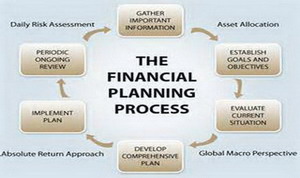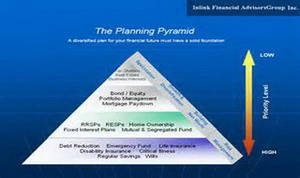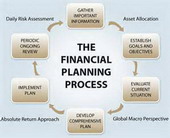Real Images
Cyanide process
The CFP® certification process, administered by CFP Board, identifies to the public that those individuals who have been authorized to use the CFP® certification marks in the U.S. have met rigorous professional standards and have agreed to adhere to the principles of integrity, objectivity, competence, fairness, confidentiality, professionalism and diligence when dealing with clients.
CFP Board conducted a nationwide consumer survey among upper-income households. That survey reflects the public's growing demand for financial planners who adhere to rigorous standards. Of those surveyed:
•85% considered successful completion of a certification examination "very important" or "extremely important."
•95% felt financial planners should adhere to professional practice standards.
•97% said the most important standard for financial planners was adherence to a professional code of ethics.
CFP® professionals must pass the comprehensive CFP® Certification Examination, pass CFP Board's Fitness Standards for Candidates and Registrants, agree to abide by CFP Board's Code of Ethics and Professional Responsibility and Rules of Conduct which put clients' interests first and comply with the Financial Planning Practice Standards which spell out what clients should be able to reasonably expect from the financial planning engagement. These are just some of the reasons why the CFP® certification is becoming increasingly recognized.


n addition, the CFP® certification prepares you for a career-long commitment to meeting the ever-changing needs of your clients. As a CFP® professional, you become a coach and problem-solver, able to provide truly personalized services to clients and to maintain high levels of financial planning and professionalism. Finally, your expertise and credibility as a financial planner is instantly communicated with the CFP® marks - the financial planning certification most sought after by consumers and financial planners alike.
Initial Certification
To become certified, you are required to meet the following initial certification requirements (known as the four "Es"):
•Education
•Examination
•Experience
•Ethics
These four components are briefly described below; subsequent sections of this Guide to CFP® Certification provide detailed information about each component. While the CFP® certification requirements may be changed from time to time, you will be expected to meet the requirements that are in place at the time you apply for the CFP® Certification Examination.
Education
The first step to CFP® certification is to acquire the knowledge required to deliver professional, competent and ethical financial planning services to clients, as outlined in the major personal financial planning topic areas identified by CFP Board’s most recent Job Analysis Study (See the list of Principal Topics). CFP Board’s coursework component requires the completion of a college-level program of study in personal financial planning, or an accepted equivalent, including completion of a financial plan development (capstone) course registered with CFP Board. You must also have earned a bachelor’s degree (or higher) from a regionally-accredited college or university in order to obtain CFP® certification. The bachelor’s degree requirement is a condition of initial certification; however, it is not a requirement to be eligible to take the CFP® Certification Examination and does not need to be met before registering for the examination. CFP Board does not grant equivalencies or exceptions to the bachelor’s degree education requirement.


Examination
After you have successfully met the education coursework requirement, you will be eligible to register for the CFP® Certification Examination. The CFP® Certification Examination assesses your ability to apply your financial planning knowledge, in an integrated format, to financial planning situations (See the Job Task Domains). Combined with the education, experience, and ethics requirements, it assures the public that you have met a level of competency appropriate for professional practice.
Experience
Because CFP® certification indicates to the public your ability to provide financial planning without supervision, CFP Board requires you to have three years of professional experience in the financial planning process, or two years of apprenticeship experience that meets additional requirements. Qualifying experience may be acquired through a variety of activities and professional settings including personal delivery, supervision, direct support or teaching.
Ethics
CFP® professionals agree to adhere to the high standards of ethics and practice outlined in CFP Board’s Standards of Professional Conduct and to acknowledge CFP Board’s right to enforce them through its Disciplinary Rules and Procedures. When you have completed the education, examination and experience components of the CFP® certification process, you will be directed to complete a CFP® Certification Application on which you will be asked to disclose information about your background, including your involvement in any criminal, civil, governmental, or self-regulatory agency proceeding or inquiry, bankruptcy, customer complaint, filing, termination/internal reviews conducted by your employer or firm. CFP Board conducts a detailed background check for all candidates, including review of any disclosures made on the CFP® Certification Application. Matters that may or will bar you from obtaining certification are investigated in accordance with CFP Board’s Disciplinary Rules and Procedures. Authorization to use the CFP® marks will not be approved until the background check and any investigation are concluded successfully.


Important Note
Applicants for CFP® certification are required to satisfy CFP Board’s Fitness Standards for Candidates and Registrants, which describe conduct that will always bar an individual from becoming certified and conduct that is presumed to be unacceptable and will bar an individual from becoming certified unless the individual successfully petitions CFP Board’s Disciplinary and Ethics Commission for consideration. CFP Board encourages all individuals pursuing CFP® certification to review the Fitness Standards for Candidates and Registrants before addressing the other certification requirements.



